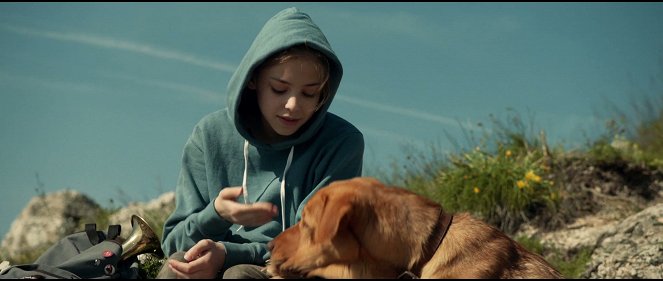Realização:
Kornél MundruczóCâmara:
Marcell RévMúsica:
Asher GoldschmidtElenco:
Zsófia Psotta, Sándor Zsótér, Lili Horvát, Szabolcs Thuróczy, Lili Monori, Gergely Bánki, Tamás Polgár, Orsolya Tóth, Kornél Mundruczó, János Derzsi (mais)Conteúdos(1)
Um conto premonitório sobre as relações entre uma espécie superior e o seu inferior caído em desgraça. Uma medida aparentemente inofensiva com vista a disciplinar a criação de cães acaba por dar origem a uma série de acontecimentos extraordinários. Favorecendo os cães com pedigree, as novas regras impõem multas às raças mistas. Os donos começam a abandonar os seus rafeiros e os canis ficam rapidamente sobrelotados. Lili, de 13 anos, procura desesperadamente proteger o seu cão Hagen. A nova lei parece-lhe cruel e sem sentido. Lili também não consegue aceitar os argumentos do pai, e sente-se devastada quando ele deixa Hagen na rua. Inconsolável, Lili detesta o pai por a fazer trair o seu amigo de quatro patas; ainda acreditando, inocentemente, que o amor pode conquistar todas as dificuldades, decide encontrar o cão e salvá-lo. Hagen também procura desesperadamente regressar a casa e a Lili. Lutando pela sobrevivência, Hagen depressa compreende que nem toda a gente é a melhor amiga do cão. Percorrendo as ruas, o antigo animal de estimação dá por si numa série de situações perigosas. Tem de fugir aos apanhadores do canil; é explorado por um pedinte manhoso, e torna-se prisioneiro de um treinador de cães de combate. De volta às ruas, Hagen junta-se a uma matilha de cães perdidos... (Alambique Filmes)
(mais)Críticas (3)
The Rise of the Planet of the Dogs, filmed with strong art energy and, unfortunately, all the clichés, logical awkward transitions, banalities and playing-for-effect that are more suited to Hollywood disaster schemes. The intended parable of xenophobia and the dominance of the "white gods" over the "inferior races" has shrunk to a few conspicuous symbols, flat characters and unconvincing replicas. The work with dog actors, energetic camera guidance and work with sound deviate in some moments, but despite the dynamic movement of the characters across the mise-en-scène, White God feels more like drawn out dog howling. I am disappointed. I would personally expect more from the winner of the Un certain regard section than just transparent dog eyes.
()
As a declared metaphor for power relations and exploitation across ethnicities in the context of society, Mundruczó’s White God is too ponderous and naïve. It could even be said that the project got out of control like the dogs in the film and the director got swept away by the challenges of implementing it and the potential for spectacle at the expense of the message. But what if the thing that some criticise Mundruczó for is actually the essence that he is increasingly working toward achieving. What if he is indeed the European equivalent of Cuarón, who does not deny his humble roots, but is rather gradually working his way up to ever more ambitious and elaborate projects? His earlier films already contained the seeds of high-concept art, to which he has added a blockbuster production dimension in his more recent projects. Whereas White God is embarrassing as an Eastern European festival film, it is sufficiently subversive and though-provoking as a Euro-art variation on the Hollywood dog melodrama. Primarily, however, it remains an absolute phenomenon and, in terms of production, an outstanding work that fascinates with the tenacity of the analogue rendering of its sequences, which anyone else would have immediately rejected or handled with digital effects. Even a solitary work can look like this.
()
I don't really like movies that are primarily allegorical, and I also don't really like movies that try to emotionally manipulate the viewer, such as those involving harming dogs. However, this film presents it all in a meaningful and well-executed way that I found captivating, especially the presentation of the film's final message. This was good.
()

